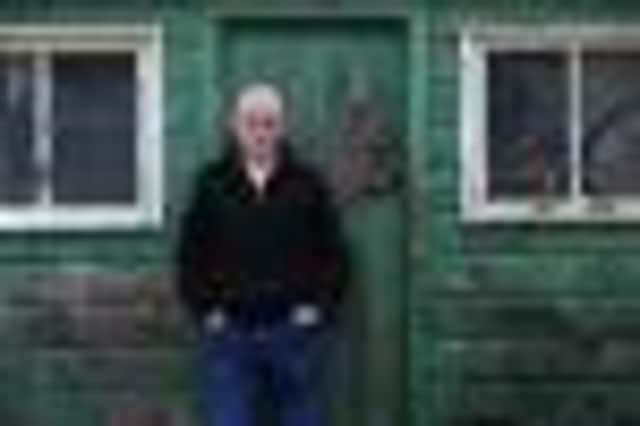Charity warns 1,500 cancer patients without help


Macmillan Cancer Support said about 1,500 of these patients would receive no help at all, facing cancer completely alone.
The charity said this isolation was due to families and friends living far away, having other commitments or patients simply having no-one to turn to.
Advertisement
Hide AdAdvertisement
Hide AdThe charity said people needed to know where they could go for support when they needed it to help them cope with the strain of cancer diagnosis and treatment.
About 29,000 people in Scotland are diagnosed with cancer each year.
Macmillan’s report, Facing the Fight Alone, found that 20 per cent of these patients – about 6,000 a year – would receive a lack of support from loved-ones during their treatment, with 4 per cent having no help at all.
Across the UK, 70,000 patients were estimated to receive a lack of support, with 20,000 completely alone.
The survey of almost 1,800 patients found that in some cases their isolation was a direct result of being diagnosed with cancer.
Almost a fifth (18 per cent) said they had lost touch with family or friends because of their diagnosis.
Four in five (80 per cent) said the financial impact of having cancer meant they could no longer afford to see friends and family as much.
The report found that 12 per cent of people living with cancer had not received a single visit from friends and family in over six months.
Advertisement
Hide AdAdvertisement
Hide AdHaving the support of loved-ones helps cancer patients look after themselves, maximising their chances of coping with treatment.
But the report found that more than half (53 per cent) of isolated patients said they had skipped meals or not eaten properly due to a lack of support at home.
More than one in four (27 per cent) had not been able to wash themselves properly, while 60 per cent had been unable to do the housework.
The report said that isolation also made it more difficult for patients to manage their medical care, with 11 per cent saying they had missed hospital or GP appointments and 18 per cent being unable to pick up prescriptions.
Allan Cowie, Macmillan’s general manager in Scotland, said: “No one should have to face cancer on their own.
“We want every cancer patient to know that Macmillan is there for them, whether they just want a listening ear or they want help coping with the physical or financial impacts of cancer.
“Our services and support can be accessed face to face, on the phone or online and I urge anyone in need of our help to get in touch. It’s also vitally important that medical professionals understand the impact isolation can have on people with cancer and direct them to sources of support, including Macmillan.”
Case study: ‘People pretended they didn’t see me’
Ian Savage knows how difficult it can be to deal with cancer without having a lot of support from family and friends.
Advertisement
Hide AdAdvertisement
Hide AdThe 55-year-old, from Irvine, lives alone and said the physical effects of his treatment for bowel cancer in 2011 left him housebound for weeks at a time.
The former builder said: “The chemotherapy hit me hard and I would find myself soaked with sweat just ironing a shirt. I have problems with my memory and concentration, which I’ve been told can be a side-effect of chemotherapy, and I need to put stickers all over the house reminding me to do things. I’m diabetic so I need stickers reminding me to take my insulin.”
But Mr Savage said his stickers system did not always work. “I’ve set my cooker on fire twice because I’ve forgotten I was making something to eat,” he said.
Going out in public also became difficult after his treatment, Mr Savage said. “Having the colostomy bag was really hard as well. It burst quite a few times when I was out, so eventually I just stopped leaving the house,” he said.
Mr Savage received some visitors, but people’s busy lives meant he was often alone. When he did get out, Mr Savage said some people found it difficult to cope with his cancer diagnosis.
“I would go into a local shop and people would pretend they didn’t see me,” he said.